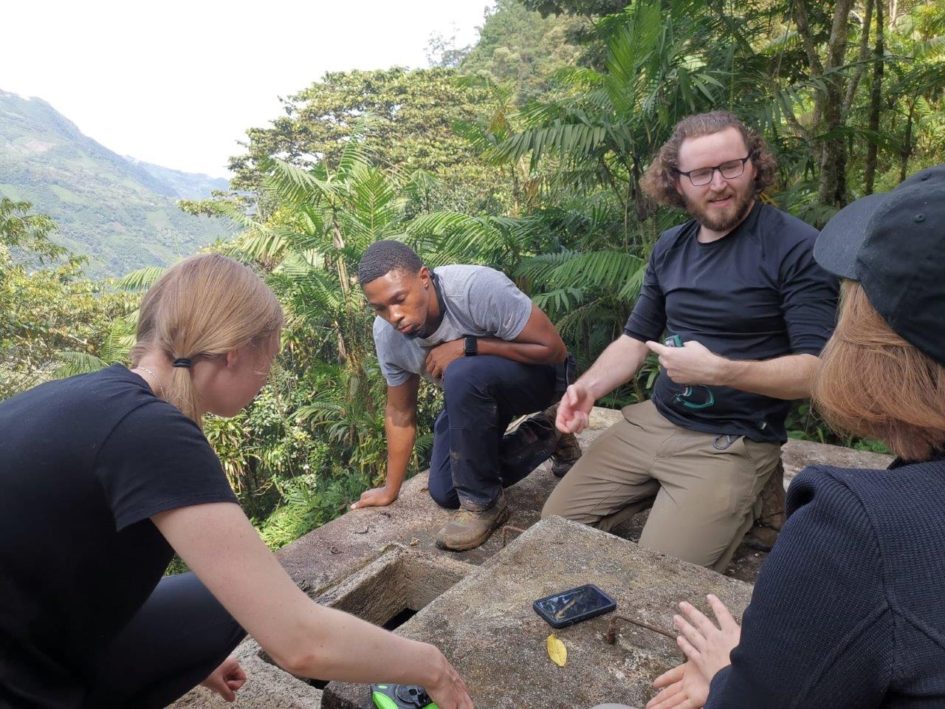AE2S Employee-Owners are using their engineering degrees to help those less fortunate through Engineers Without Borders (EWB). Jonathan Wirkkala is an Engineer-in-Training (EIT) with the Electrical and Instrumentation and Controls (I&C) Practice. Jonathan joined EWB in January 2019 when he first moved to Grand Forks to attend college. Ever since then he has actively participated in the University of North Dakota (UND) EWB chapter, first as a student and now as a mentor. “Thankfully, AE2S has been amazing in working with me to keep me actively helping and travelling for EWB,” he says enthusiastically.
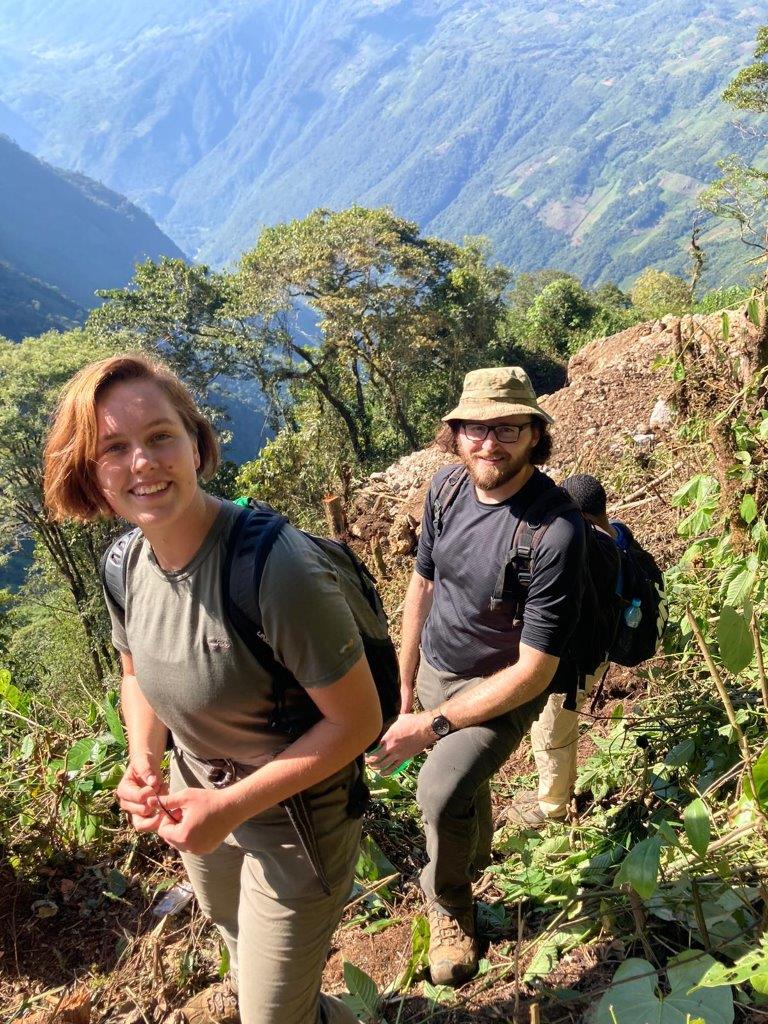
AE2S EIT Jonathan Wirrkala and a UND engineering student hiking to Pambon, Guatemala.
After landing in Guatemala in late December, Jonathan spent 10 days with the UND EWB chapter traversing to the remote village of Pambon. “From where we were staying, it took us a total of 3 hours to get to the village. There was roughly an hour bus ride out of the city, then when the roads got too steep and undeveloped, we switched to a truck, and once the truck couldn’t go any further, we had to switch to hiking with our equipment on our backs.”
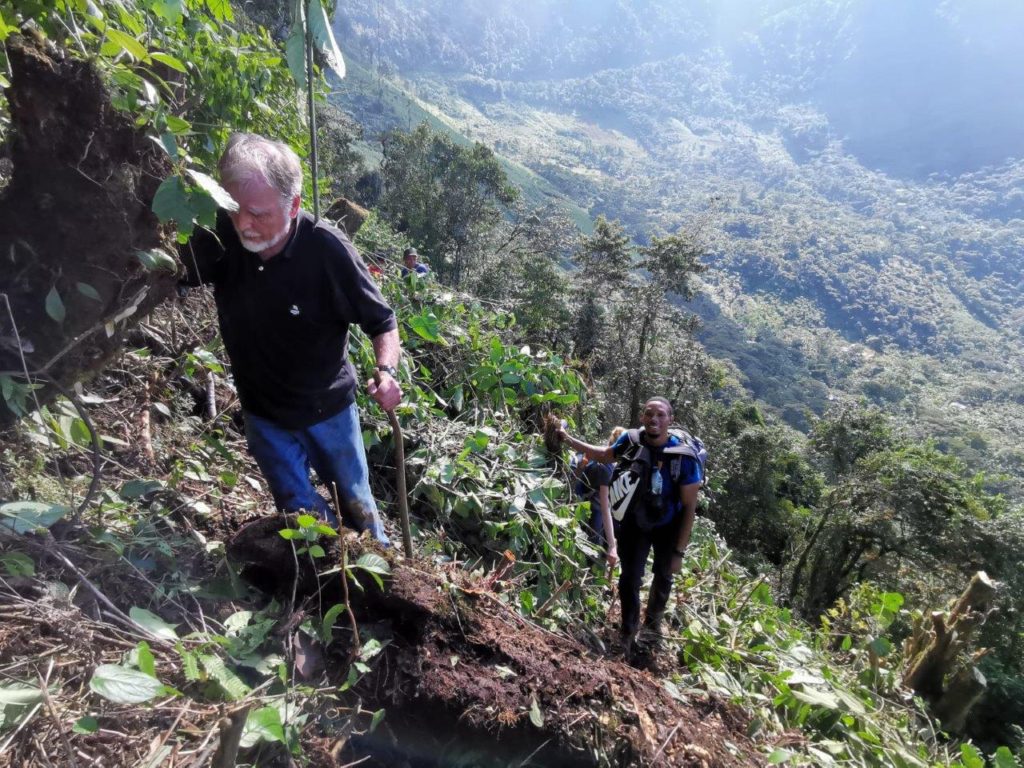
Retired AE2S Senior Project Manager Perry Johnson served as a mentor alongside AE2S EIT Jonathan Wirkkala on a University of North Dakota Engineers Without Borders trip to Pambon, Guatemala.
Jonathan and retired AE2S Senior Project Manager Perry Johnson served as mentors to five UND students during the trip. “With Engineers Without Borders, I get to work on projects that are needed, and projects that are useful to the world around me. To see engineering students with no experience, take charge with running a project and facilitating meetings between community members, contractors, and various other organizations is amazing,” says Jonathan.
The group of seven worked on a water treatment and storage system to benefit the village of Pambon. It is not known how long the village has been there, but the people that live in the village are Poqomchi natives who are Mayan descendants. The community of about 550 people has access to two freshwater springs for drinking water. “Perry focused mainly on the structural aspects of the system, as in the washbasins and storage tanks. I was more directed towards operation of the system and the management side of things,” he explains. Managing the process included interacting with the community leaders, logistics involving the construction of the system, as well as teaching the community how to operate and maintain the system. “Being an Electrical Engineer, my expertise in my discipline wasn’t needed on this particular system since there were no electrical components. However, aspects of engineering not normally taught to students, like logistics and project management, is where I came in,” says Jonathan.
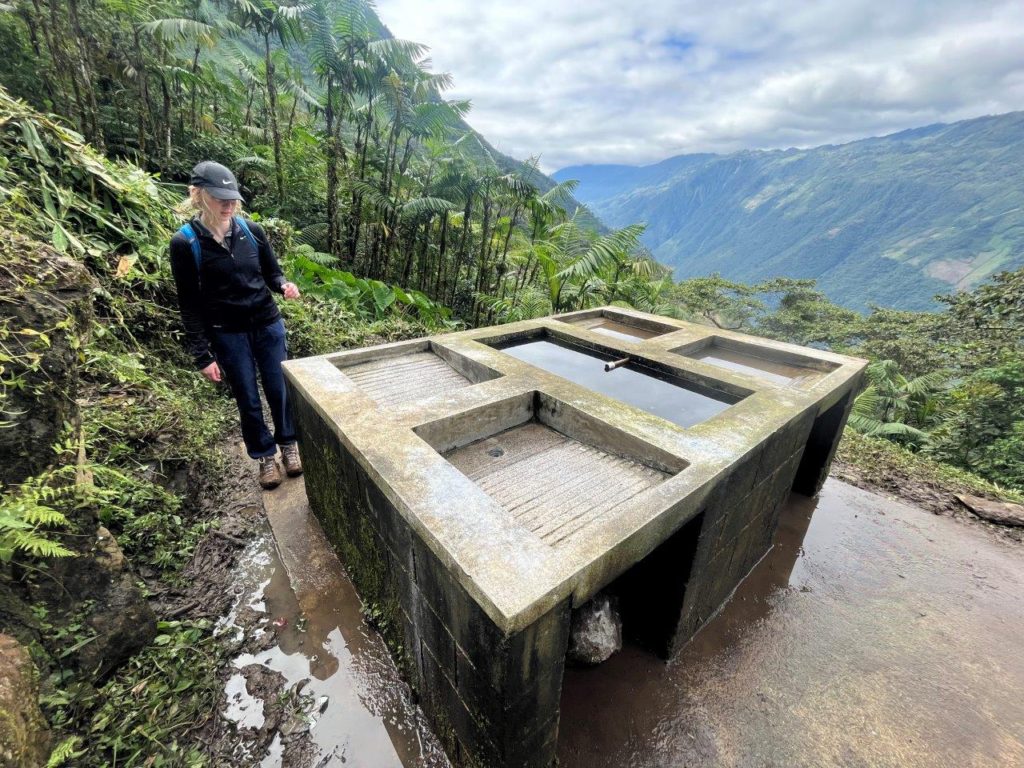
The village of Pambon’s new washbasins were built by the UND EWB team.
In his day job, Jonathan typically works on the controls portion of water treatment facilities for drinking water projects. He also works with the Rural Water Practice on reservoir, booster station, and metering vault controls, and electrical design. “I originally got into engineering because I wanted to build things. When I was young, I wanted to build giant bridges. I ended up in Electrical Engineering after I worked on avionics systems in the U.S. Air Force,” Jonathan says. “When I came to North Dakota, I became passionate about water and how it affects us. Engineers Without Borders is a fantastic organization that is also dedicated to water and providing access to clean drinking water is something that many people take for granted. I continue to stay involved not only for the chance to improve access to clean water for everyone, but to also help other aspiring engineers find their passion and develop their engineering and leadership skills.”
The Guatemala project also benefitted from fellow AE2S EITs Savana Schauer and Nicole Dolejs, who participated in the UND EWB chapter as students and were on the initial travel team sent to Pambon for a site assessment in 2019. “Savana and Nicole were key mentors when it came to the process and civil aspects of the water system,” says Jonathan.
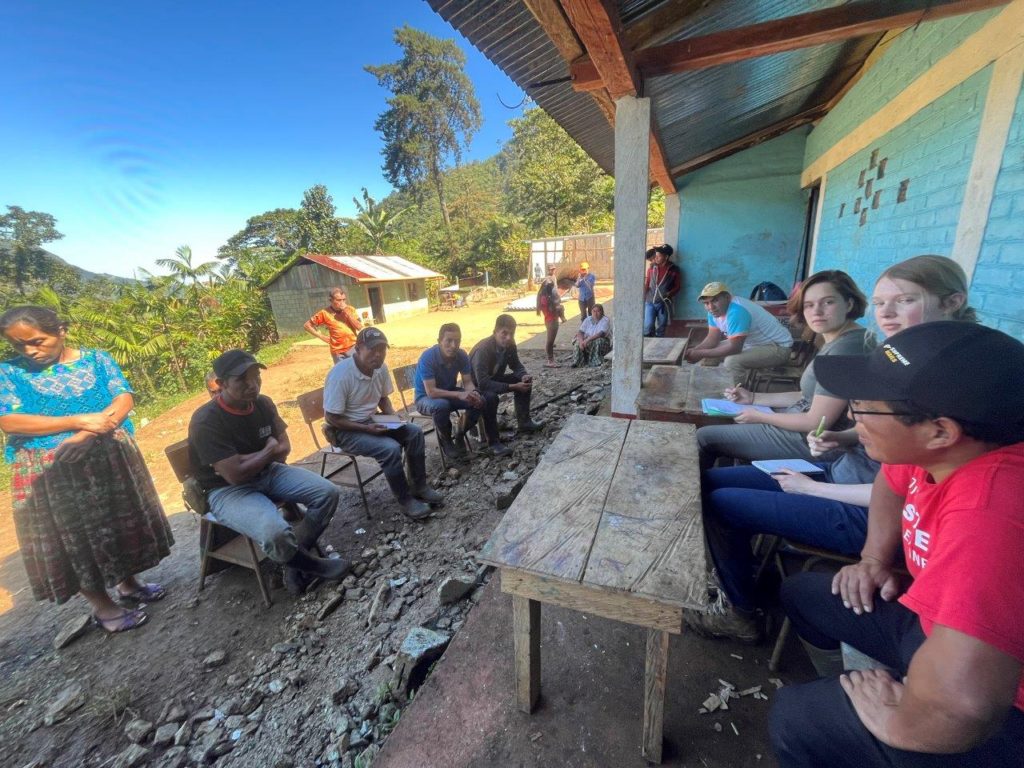
The UND EWB team meets with Pambon villagers.
With the project in Pambon in its final stages, the UND EWB chapter has been working on a new water project in the community of Nuevo San Vicente, Guatemala. Jonathan says he is especially excited for the project due to its increased complexity and because there is an electrical component to it as well.
UND Today previously published an article about Savana Schauer and Nicole Dolej’s experience in Pambon, Guatemala: To fetch a pail of water — and a scholarship, internship and job – UND Today
